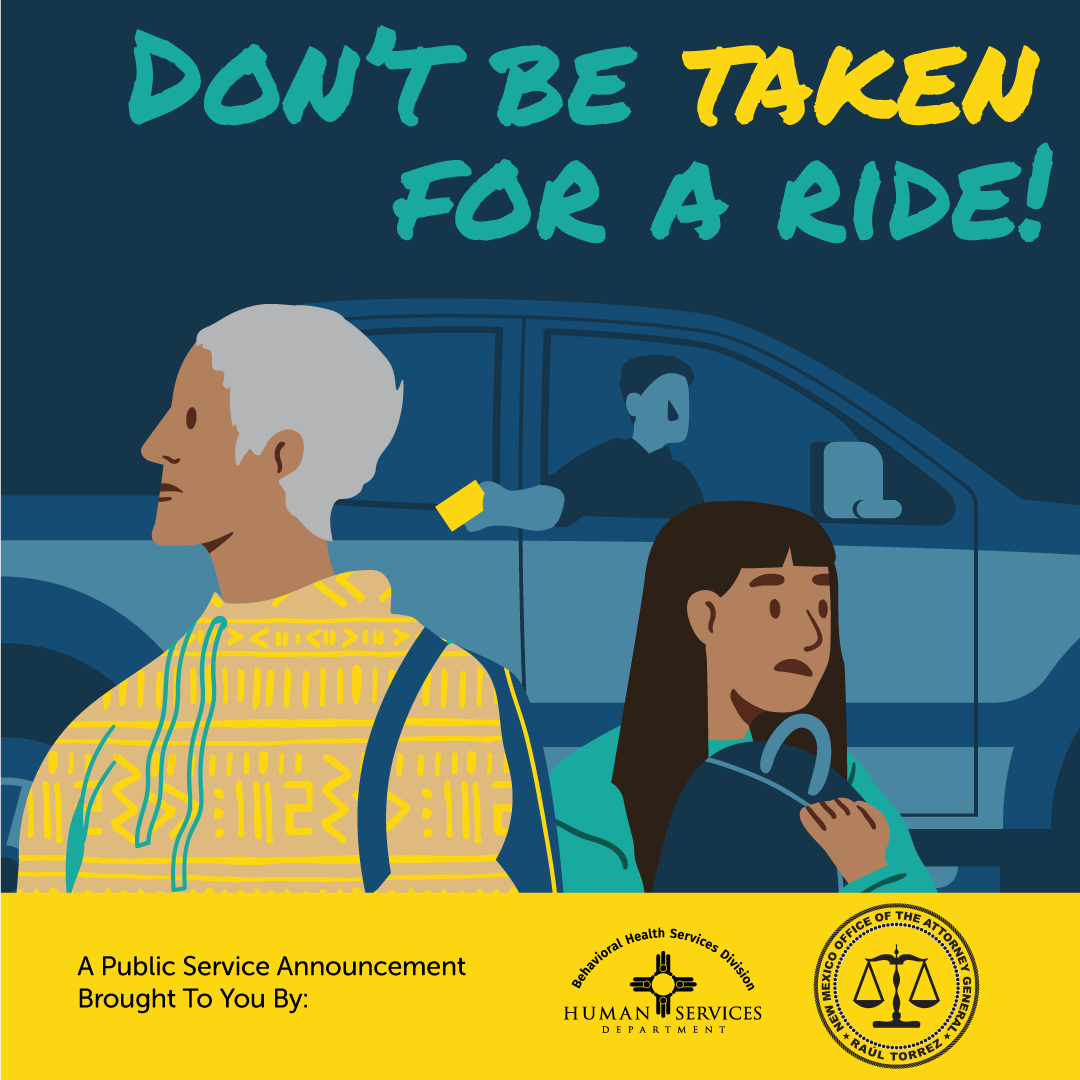NM launches campaign to raise awareness about scam targeting Native Americans
ALBUQUERQUE, N.M. — You may remember the social media video showing someone trying to lure a Native American man into a truck in Gallup.
In that video, scammers allegedly promised healthcare services. This isn’t the only instance either.
“Individuals were being approached in our northwest area. They’re vulnerable individuals of American Indian/Native American descent who were offered – in exchange for behavioral health resources – food and shelter and resources to help with substance use disorder,” said Shelly Begay, the Native American Liaison for the New Mexico Human Services Department and the Office of the Secretary.
According to Begay, the State of Arizona alerted HSD of this in July. Then, together with the attorney generals there and here in New Mexico, they began the “Don’t Be Taken For a Ride” campaign.
The goal is to make the 988 crisis line and other resources more visible.
When you call, text or chat with the hotline, a trained professional will note your information and determine if the situation is an immediate crisis.
“If the individual wants to leave information for the attorney general’s office, that information will be forwarded not only to the attorney general but also to New Mexico Human Services. Then, they will be in contact with them,” Begay explained.
The hope is they will identify leads on suspected scammers and provide help to people affected.
To beware, you should watch out for anyone promising you money, food and/or shelter if you come with them to get help. Anyone credible will not make those promises.
That is why community partners are important to the campaign.
“Individuals that are known to work and provide services directly for our population. We do want to ensure that we are visible in the community. We have worked a number of community engagements. This includes our tribal health fairs, tribal resource events, and basically anywhere, anybody, any of our partners are able to have us,” Begay said.
Partners have seen success through these avenues.
“The public is receptive. They’re asking questions and information is being shared,” Begay said.
If you don’t feel comfortable calling 988, there is also a provider toolkit also has resources available. Click here to learn more that and Don’t Be Taken For A Ride.
MORE:
- New Mexico officials launch awareness campaign on behavioral healthcare scams
- Officials warn of scams targeting Native Americans after alarming TikTok video
- Victim of Arizona insurance scam speaks out
- Multiple nonprofits say homeless people in Albuquerque are going missing
